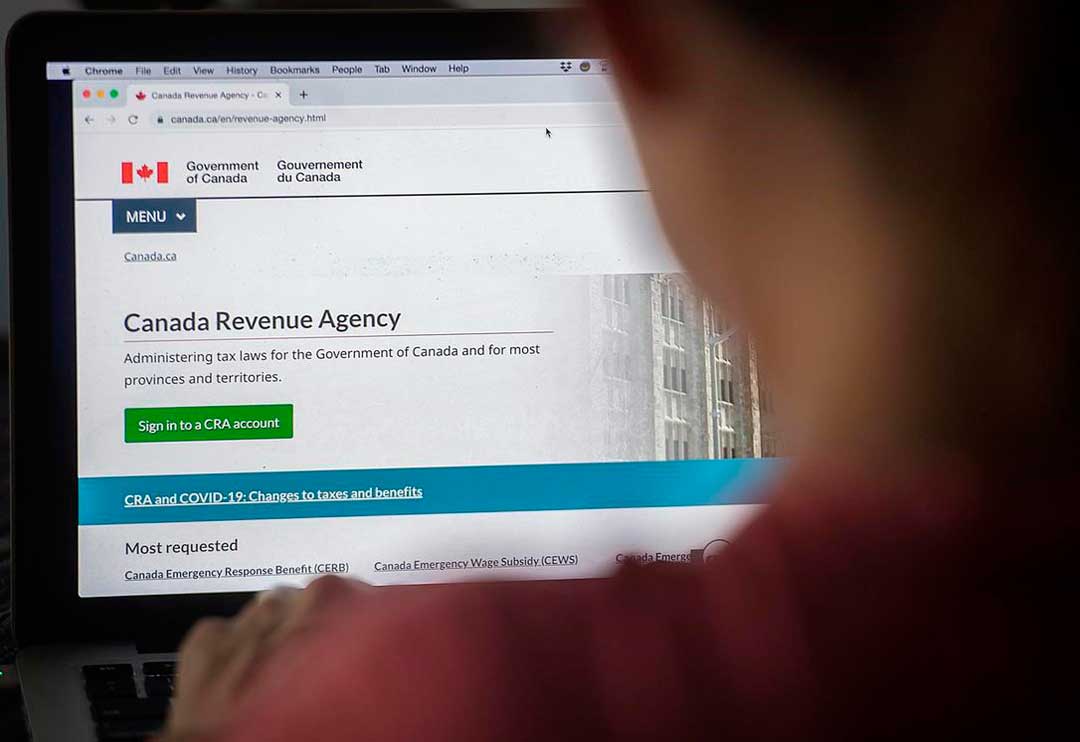
The Canada Revenue Agency has recently locked out 800,000 users from their online accounts, out of fear that people’s usernames and passwords have been hacked.
Citing the cybersecurity risk of having this information in the hands of potentially bad actors, obtained through email phishing schemes or third-party data breaches, the CRA says the move is precautionary.
“Like the accounts that were locked in February, these user IDs and passwords were not compromised as a result of a breach of CRA’s online systems, rather they may have been obtained by unauthorized third parties and through a variety of means by sources external to the CRA,” said the CRA in a statement.
“The total number of accounts impacted is roughly 800 thousand,” said the CRA.
The agency said that unlike what happened in February, it wanted to warn people ahead of time that the access to their accounts may be down, given its tax time.
If attempts are made to log in to a frozen account, the user will receive an error message informing them that their CRA user ID has been revoked.
Impacted individuals will be contacted by the email address associated with their accounts, or if there was not one on file, by mail.
Taxpayers can re-gain access to their CRA account by going to the CRA login page and creating a new CRA user ID and password or by using a different login method associated with their CRA account, the agency says.
It may take until March 22 for the issues to be resolved, but after that date, if users are unable to log in they should call the CRA.
As part of its ongoing monitoring the agency keeps an eye on any government-used usernames and passwords that go up for sale on the dark web and the CRA then moves to lock these accounts. This can happen when people use the same login information across multiple websites.
“All Canadians should monitor their CRA accounts for any suspicious activity including unsolicited changes to banking, mailing address or benefit applications made on their behalf. In addition, passwords should be updated regularly,” said the CRA.
Source: CTVNews
Newsletters
Newsletter – February 2020
NewslettersEvents & SponsorshipArticles & Publications
Newsletter – August 2019
NewslettersEvents & SponsorshipArticles & Publications
Newsletter – May 2019
NewslettersEvents & SponsorshipArticles & Publications
Newsletter – April 2019
NewslettersEvents & SponsorshipArticles & Publications
E-Newsletter – February 2019
Events & Sponsorship
No Results Found
The page you requested could not be found. Try refining your search, or use the navigation above to locate the post.
Articles & Publications
Do corporate loans count as taxable income?
Do corporate loans count as taxable income? When shareholders or employees borrow money from a corporation, that money is generally considered taxable income. But this rule, like many CRA rules, has exceptions. Many shareholders and employees borrow funds from their...
Beware of using your corporation’s income to pay personal expenses.
Beware of using your corporation's income to pay personal expenses. Suppose you own an incorporated business or professional corporation. In that case, it can be pretty tempting to pay for various personal expenses out of your corporation's income, but doing so is...
How the principal residence rule works
Principal Residence Rules Since 1982, each family unit (including you, your spouse or common-law partner, and any unmarried kids under the age of 18) has been able to designate one property as its principal residence for each calendar year. To simplify the...
Introducing the new Confirm my Representative service
The new Confirm my Representative service. On October 18, 2021, the Canada Revenue Agency (CRA) is introducing a new, two-step verification process to make authorizing a representative using Represent a Client more efficient and secure. The new process makes it easier...
The future of the COVID aid program
The future of the COVID aid program The CRB is one of three programs (alongside the Canada Recovery Caregiving Benefit and the Canada Recovery Sickness Benefit) that replaced the initial $2,000-per-month Canada Emergency Response Benefit (CERB) in September 2020. The...